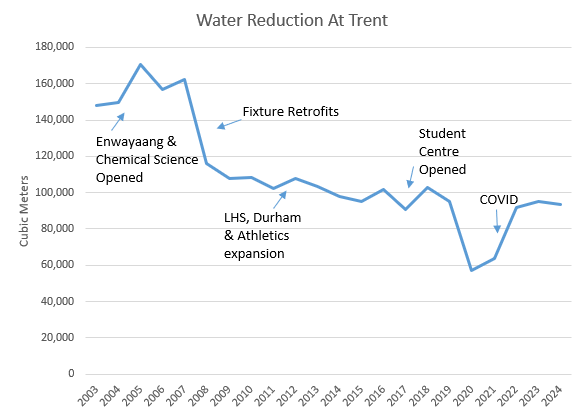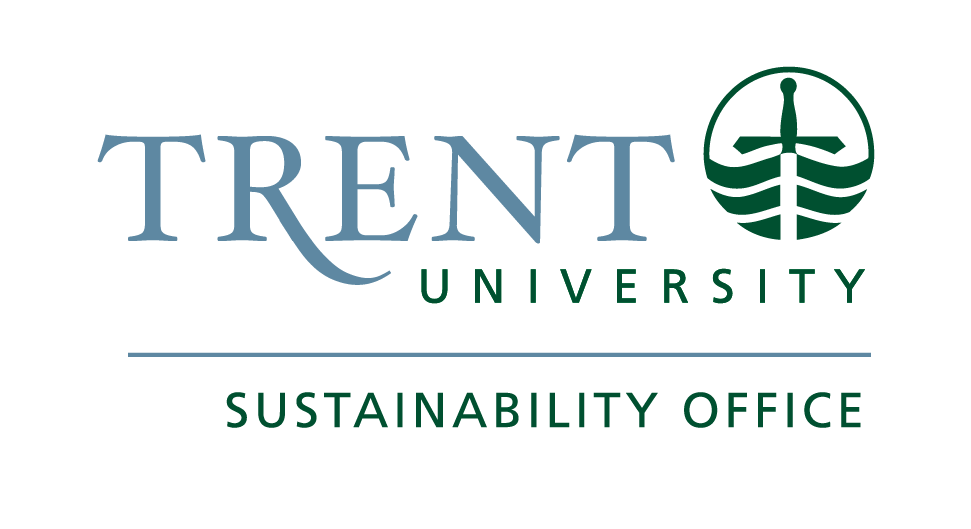Located on the shores of the Odenabe River and home to the Trent Water Quality Centre, water is at the heart of Trent University. We are committed to managing water responsibly within our buildings and actively contribute to the broader understanding of human impacts on water quality and aquatic ecosystems through research.
Use of Potable Water on Campus
Since 2007, Trent has made significant strides in reducing potable water use across campus. By replacing outdated fixtures with high-efficiency models and launching conservation campaigns we have achieved more than 40% reduction in water use on campus.
Estimated savings since 2007:
- 1,300,000m3 of water
- $990,000 in water cost savings,
- $630,0001 in avoided natural gas costs and
- 5,300t GHG reduction (CO2e)

Figure. Since 2007 Trent has made significant improvements to the overall water usage across campus while increasing in size and population.
Campus Development: Low-Impact Design
For decades, Trent has incorporated low-impact design features across campus. From green roofs and bioswales to permeable parking and stormwater features that divert runoff to naturalized areas, our campus is a living example of sustainable water management. The Trent Lands and Nature Areas Plan now provides comprehensive guidance to balance development with conservation, ensuring future growth is consistent with overall watershed health.
Collective Responsibility & Understanding
We recognize our responsibility extends beyond campus boundaries. Aquatic ecosystems are dynamic and interconnected, and the effects of our activities can have far-reaching consequences. At Trent, we strive not only to minimize our operational impacts but to contribute to an overall better understanding of water systems through research.
As a leader in aquatic science, Trent's Water Quality Centre (WQC) conducts advanced research on contaminants, trace metals, and emerging pollutants, supporting efforts to protect aquatic ecosystems. The Trent Aquatic Research Program (TARP) builds on Trent's long history of studying local waterways, and expands its focus to examine how human activity and climate change impact aquatic environments. Together the WQC and TARP position Trent as a leader in aquatic research, benefitting both local ecosystems and broader conservation efforts.
We reflect this understanding in our campus operations by thinking global and acting local. Campus policies and practices to address single-use plastics and reduce waste contribute to Canada's commitment to the Ocean Plastics Charter and their Zero Waste Plastic and Action Plan supporting efforts to protect aquatic ecosystem from the harmful impacts of plastic waste. We also align with the Drinking Water Source Protection Area regulations on best practice to mitigate water discharges and to the City of Peterborough's Watershed Plan for overall watershed health. Trent is an active collaborator in safeguarding water quality for future generations.
Note: 1. Estimates of natural gas cost savings are not yet updated to include 2024 data.


